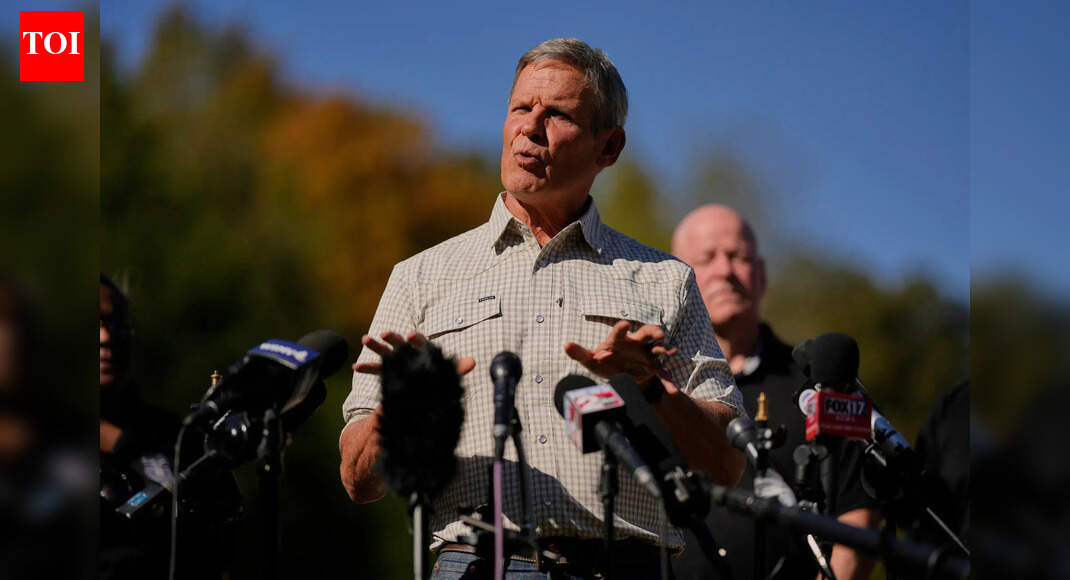
Tennessee’s newest education experiment, a sweeping statewide school voucher programme carrying a $150 million price tag, has triggered a legal confrontation that cuts to the heart of public education. What began as Governor Bill Lee’s flagship “Education Freedom Act,” a plan pitched as expanding parental choice, has now collided with deep anxieties among parents, public school advocates, and taxpayers who argue the state is abdicating its constitutional duty.Filed Thursday in Davidson County Chancery Court, the lawsuit represents a coalition of families and taxpayers who say this ambitious voucher push is not innovation but an impermissible diversion of public money. At stake is not only the fate of Tennessee’s school finance architecture but also the political ambition behind a movement sweeping across Republican-led states.
The lawsuit: A direct challenge to Tennessee’s public school mandate
At the centre of the complaint lies a simple, uncompromising argument: Tennessee’s Constitution requires the state to “maintain and support a system of free public schools.” The plaintiffs contend the new voucher scheme reneges on that obligation by funding private institutions that:
- May deny admission based on race, disability, religion, LGBTQ+ status, academic ability or English proficiency
- Are not required to provide special education.
- Do not offer free schooling,
- And operate with limited academic accountability, since they may swap the state’s own Tennessee Comprehensive Assessment Programme for a national standardized test.
Even a “hold harmless” clause meant to cushion public schools from declining enrollment is, the lawsuit claims, little more than symbolic. The financial gap left by students exiting for private schools remains wide.As Lucas Cameron-Vaughn of the ACLU of Tennessee told to the Associated Press, “This voucher scheme does the opposite of what the Constitution demands. It siphons desperately needed resources away from public schools that serve all students and hands that money to private schools with no accountability, no transparency, and no obligation to serve every child.”
A rapid national trend and Tennessee’s gamble
Tennessee is far from alone. Republican-led states, from Texas, which approved a staggering $1 billion voucher plan, to a growing bloc across the South and Midwest, are rapidly expanding school choice programmes beyond low-income families. What began as targeted scholarship initiatives has ballooned into broad eligibility schemes that allow even students already enrolled in private and religious schools to tap into taxpayer funds.In Tennessee’s case, 20,000 vouchers worth about $7,300 each are slated for the 2025–26 school year. Half are reserved for lower-income students or those with disabilities. The remaining 10,000 are open to any student zoned for a public school, including those long embedded in private systems.Interest is already explosive. Governor Lee’s office says over 40,000 families have applied, evidence, supporters insist, that parents crave alternatives to what they view as politicized, union-dominated public systems.
Political stakes: A governor’s legacy meets a Constitutional roadblock
The Legislature’s Republican supermajority passed the statewide programme earlier this year at Lee’s urging, positioning education freedom as a centerpiece of conservative governance. For critics, however, that “freedom” comes with a fiscal and moral cost: The hollowing out of public education, the system designed to educate every child.Lee is undeterred. His administration maintains absolute confidence that courts will uphold the law. “Every child deserves an opportunity to succeed,” spokesperson Elizabeth Lane Johnson said to the Associated Press, arguing the voucher programme both empowers families and invests in public schools.Behind the scenes, lawmakers are already eyeing more vouchers in the coming legislative session, a sign that political momentum is firmly behind the expansion, not retreat.
A long trail of controversy
Tennessee’s history with vouchers is hardly smooth. A two-county programme launched in 2019 for lower-income students in Nashville and Shelby County was delayed and litigated, and only after years was it allowed to proceed. The pilot later expanded to Hamilton County. But the statewide leap is by far the boldest and the most vulnerable attempt yet.With the new lawsuit, Tennessee faces a defining question: Is school choice a constitutional advancement or a constitutional breach?
A state at a crossroads
As the case proceeds, Tennessee finds itself at a moment of profound educational reckoning. The battle is no longer merely ideological; it is constitutional, financial, and deeply personal for the families on each side.The coming months will determine whether vouchers become an enduring fixture of Tennessee’s education landscape or whether the courts will halt the programme before its first statewide cohort even enters a classroom.Either way, the lawsuit has ensured that the fight over the future of public education will not unfold quietly.








